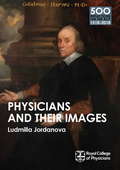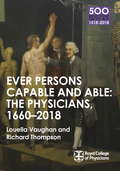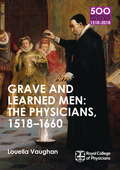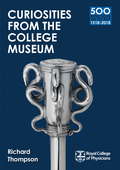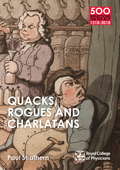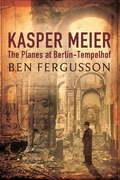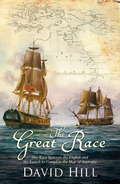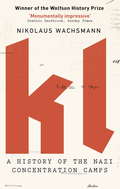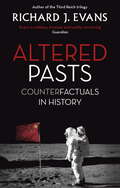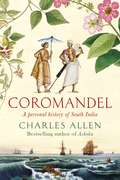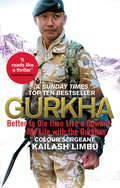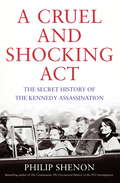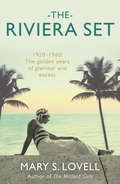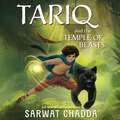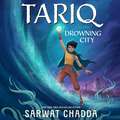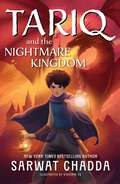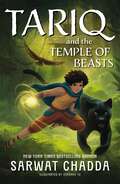- Table View
- List View
Physicians and their Images
by Ludmilla JordanovaThe Royal College of Physicians celebrates its 500th anniversary in 2018, and to observe this landmark is publishing this series of ten books. Each of the books focuses on fifty themed elements that have contributed to making the RCP what it is today, together adding up to 500 reflections on 500 years. Some of the people, ideas, objects and manuscripts featured are directly connected to the College, while others have had an influence that can still be felt in its work.This, the eighth book in the series looks at the art and portraits of the Royal College.
The Physicians 1660-2018: Ever Persons Capable and Able
by Richard Thompson Louella VaughanThe Royal College of Physicians celebrates its 500th anniversary in 2018, and to observe this landmark is publishing this series of ten books. Each of the books focuses on fifty themed elements that have contributed to making the RCP what it is today, together adding up to 500 reflections on 500 years. Some of the people, ideas, objects and manuscripts featured are directly connected to the College, while others have had an influence that can still be felt in its work.This, the seventh book in the series looks at the history of the Royal College.
The Physicians 1660-2018: Ever Persons Capable and Able (500 Reflections on the RCP, 1518-2018 #7)
by Richard Thompson Louella VaughanThe Royal College of Physicians celebrates its 500th anniversary in 2018, and to observe this landmark is publishing this series of ten books. Each of the books focuses on fifty themed elements that have contributed to making the RCP what it is today, together adding up to 500 reflections on 500 years. Some of the people, ideas, objects and manuscripts featured are directly connected to the College, while others have had an influence that can still be felt in its work.This, the seventh book in the series looks at the history of the Royal College.
Grave and Learned Men: 500 Reflections on the RCP, 1518-2018: 05 Book Six (500 Reflections on the RCP, 1518-2018 #6)
by Louella VaughanThe Royal College of Physicians celebrates its 500th anniversary in 2018, and to observe this landmark is publishing this series of ten books. Each of the books focuses on fifty themed elements that have contributed to making the RCP what it is today, together adding up to 500 reflections on 500 years. Some of the people, ideas, objects and manuscripts featured are directly connected to the College, while others have had an influence that can still be felt in its work.This, the sixth book in the series looks at the history of the Royal College.
Grave and Learned Men: The Physicians, 1518-1660 (500 Reflections On The Rcp, 1518-2018 Ser. #6)
by Louella VaughanThe Royal College of Physicians celebrates its 500th anniversary in 2018, and to observe this landmark is publishing this series of ten books. Each of the books focuses on fifty themed elements that have contributed to making the RCP what it is today, together adding up to 500 reflections on 500 years. Some of the people, ideas, objects and manuscripts featured are directly connected to the College, while others have had an influence that can still be felt in its work.This, the sixth book in the series looks at the history of the Royal College.
Curiosities from the College Museum (500 Reflections on the RCP, 1518-2018 #5)
by Richard ThompsonThe Royal College of Physicians celebrates its 500th anniversary in 2018, and to observe this landmark is publishing this series of ten books. Each of the books focuses on fifty themed elements that have contributed to making the RCP what it is today, together adding up to 500 reflections on 500 years. Some of the people, ideas, objects and manuscripts featured are directly connected to the College, while others have had an influence that can still be felt in its work.This fifth book in the series is a celebration of 50 fascinating objects in the Royal College's museum and collections.
Quacks, Rogues and Charlatans of the RCP (500 Reflections on the RCP, 1518-2018 #3)
by Mr Paul StrathernThe Royal College of Physicians celebrates its 500th anniversary in 2018, and to observe this landmark is publishing this series of ten books. Each of the books focuses on fifty themed elements that have contributed to making the RCP what it is today, together adding up to 500 reflections on 500 years. Some of the people, ideas, objects and manuscripts featured are directly connected to the College, while others have had an influence that can still be felt in its work. This third book in the series is a lively tour of some of the colourful characters and dubious cures that have littered the College's 500-year history, and highlights the role the College has played in regulating the medical profession.
Kasper Meier: The Planes at Berlin-Tempelhof
by Ben Fergusson'He had seen the British soldiers arrive and lead them out through the courtyard: cheats, prostitutes, liars, war criminals, but mostly people like him - half-starved blackmarketeers lying about who they shared their rooms with.' Kasper Meier lives in Berlin - the city and its people broken by war. He scrabbles to get by, finding things that people need: cigarettes, information, other people. A stranger approaches Kasper in a makeshift cafe, seeking the whereabouts of a painting by Gustav Klimt. Kasper is out of his depth, but the promise of goods and the man's menacing threats leave him with no choice but to track it down. The search leads him to Frau Roland and Berlin-Tempelhof, where she spends hours watching the aeroplanes arriving and departing. What is she waiting for? Where is the painting? And is Kasper's life in danger? In this intriguing and compelling short story, Ben Fergusson introduces us to the world of post-war Berlin and provides a taste of his extraordinary debut novel, The Spring of Kasper Meier, which is published in hardback and ebook in July 2014.
Landfalls: A Novel
by Naomi J. WilliamsAn epic voyage, undertaken with the grandest of ambitions.Lapérouse leaves France in the Spring of 1785 with two ships under his command, knowing that he sails with the full backing of the French government. This is to be a voyage of scientific and geographical discovery - but every person on board has their own hopes, ambitions and dreams. As the ships move across vast distances in their journey of nearly four years, the different characters step forward and invite us into their world. From the remote Alaskan bay where a dreadful tragedy unfolds, to the wild journey Barthélemy de Lessups undertakes from the far east of Russia to St Petersburg, the reader is irresistibly drawn into a extraordinarily vivid world. Landfalls is a profoundly moving and intensely evocative novel about scientific exploration, human endeavour and individual tragedy,
The Great Race: The Race Between the English and the French to Complete the Map of Australia
by David HillOn the afternoon of 8 April 1802, in the remote southern ocean, two explorers had a remarkable chance encounter. Englishman Matthew Flinders and Frenchman Nicolas Baudin had been sent by their governments on the same quest: to explore the uncharted coast of the great south land and find out whether the west and east coasts, four thousand kilometres apart, were part of the same island. And so began the race to compile the definitive map of Australia. These men's journeys were the culmination of two hundred years of exploration of the region by the Dutch - most famously Abel Tasman - the Portuguese, the Spanish and by Englishmen such as the colourful pirate William Dampier and, of course, James Cook. The three-year voyages of Baudin and Flinders would see them endure terrible hardships in the spirit of discovery. They suffered scurvy and heat exhaustion, and Flinders was shipwrecked and imprisoned - always knowing he was competing with the French to produce the first map of this mysterious continent. Written from diaries and other first-hand accounts, this is the thrilling story of men whose drawings recorded countless previously unknown species and turned mythical creatures into real ones, and whose skill and determination enabled Terra Australis Incognita to become Australia.
The Great Race: The Race Between the English and the French to Complete the Map of Australia
by David HillOn the afternoon of 8 April 1802, in the remote southern ocean, two explorers had a remarkable chance encounter. Englishman Matthew Flinders and Frenchman Nicolas Baudin had been sent by their governments on the same quest: to explore the uncharted coast of the great south land and find out whether the west and east coasts, four thousand kilometres apart, were part of the same island. And so began the race to compile the definitive map of Australia. These men's journeys were the culmination of two hundred years of exploration of the region by the Dutch - most famously Abel Tasman - the Portuguese, the Spanish and by Englishmen such as the colourful pirate William Dampier and, of course, James Cook. The three-year voyages of Baudin and Flinders would see them endure terrible hardships in the spirit of discovery. They suffered scurvy and heat exhaustion, and Flinders was shipwrecked and imprisoned - always knowing he was competing with the French to produce the first map of this mysterious continent. Written from diaries and other first-hand accounts, this is the thrilling story of men whose drawings recorded countless previously unknown species and turned mythical creatures into real ones, and whose skill and determination enabled Terra Australis Incognita to become Australia.
KL: A History of the Nazi Concentration Camps
by Nikolaus WachsmannIn March of 1933, a disused factory surrounded by barbed wire held 223 prisoners in the town of Dachau. By the end of 1945, the SS concentration camp system had become an overwhelming landscape of terror. Twenty-two large camps and over one thousand satellite camps throughout Germany and Europe were at the heart of the Nazi campaign of repression and intimidation. The importance of the camps in terms of Nazi history and our modern world cannot be questioned. Dr Nikolaus Wachsmann is the first historian to write a complete history of the camps. Combining the political and the personal, Wachsmann examines the organisation of such an immense genocidal machine, whilst drawing a vivid picture of life inside the camps for the individual prisoner. The book gives voice to those typically forgotten in Nazi history: the 'social deviants', criminals and unwanted ethnicities that all faced the terror of the camps. Wachsmann explores the practice of institutionalised murder and inmate collaboration with the SS selectively ignored by many historians. Pulling together a wealth of in-depth research, official documents, contemporary studies and the evidence of survivors themselves, KL is a complete but accessible narrative.
Altered Pasts: Counterfactuals in History
by Sir Richard J. Evans FBA, FRSL, FRHisA bullet misses its target in Sarajevo, a would-be Austrian painter gets into the Viennese academy, Lord Halifax becomes British prime minister in 1940: seemingly minor twists of fate on which world-shaking events might have hinged.Alternative history has long been the stuff of parlour games, war-gaming and science fiction, but over the past few decades it has become a popular stomping ground for serious historians. Richard J. Evans now turns a critical, slightly jaundiced eye on the subject. Altered Pasts examines the intellectual fallout from historical counterfactuals. Most importantly, Evans takes counterfactual history seriously, looking at the insights, pitfalls and intellectual implications of changing one thread in the weave of history.
Coromandel: A Personal History of South India
by Charles AllenCOROMANDEL. A name which has been long applied by Europeans to the Northern Tamil Country, or (more comprehensively) to the eastern coast of the Peninsula of India.This is the India highly acclaimed historian Charles Allen visits in this fascinating book. Coromandel journeys south, exploring the less well known, often neglected and very different history and identity of the pre-Aryan Dravidian south. During Allen's exploration of the Indian south he meets local historians, gurus and politicians and with their help uncovers some extraordinary stories about the past. His sweeping narrative takes in the archaeology, religion, linguistics and anthropology of the region - and how these have influenced contemporary politics. Known for his vivid storytelling, for decades Allen has travelled the length and breadth of India, revealing the spirit of the sub-continent through its history and people. In Coromandel, he moves through modern-day India, discovering as much about the present as he does about the past.
Coromandel: A Personal History of South India
by Charles AllenCOROMANDEL. A name which has been long applied by Europeans to the Northern Tamil Country, or (more comprehensively) to the eastern coast of the Peninsula of India.This is the India highly acclaimed historian Charles Allen visits in this fascinating book. Coromandel journeys south, exploring the less well known, often neglected and very different history and identity of the pre-Aryan Dravidian south. During Allen's exploration of the Indian south he meets local historians, gurus and politicians and with their help uncovers some extraordinary stories about the past. His sweeping narrative takes in the archaeology, religion, linguistics and anthropology of the region - and how these have influenced contemporary politics. Known for his vivid storytelling, for decades Allen has travelled the length and breadth of India, revealing the spirit of the sub-continent through its history and people. In Coromandel, he moves through modern-day India, discovering as much about the present as he does about the past.
Gurkha: Better to Die than Live a Coward: My Life in the Gurkhas
by Colour-Sergeant Kailash LimbuIn this Sunday Times Top Ten bestselling memoir that 'reads like a thriller', (Joanna Lumley) Colour-Sargent Kailash Limbu shares a riveting account of his life as a Gurkha soldier-marking the first time in its two-hundred-year history that a soldier of the Brigade of Gurkhas has been given permission to tell his story in his own words.In the summer of 2006, Colour-Sargeant Kailash Limbu's platoon was sent to relieve and occupy a police compound in the town of Now Zad in Helmand. He was told to prepare for a forty-eight hour operation. In the end, he and his men were under siege for thirty-one days - one of the longest such sieges in the whole of the Afghan campaign.Kailash Limbu recalls the terrifying and exciting details of those thirty-one days - in which they killed an estimated one hundred Taliban fighters - and intersperses them with the story of his own life as a villager from the Himalayas. He grew up in a place without roads or electricity and didn't see a car until he was fifteen.Kailash's descriptions of Gurkha training and rituals - including how to use the lethal Kukri knife - are eye-opening and fascinating. They combine with the story of his time in Helmand to create a unique account of one man's life as a Gurkha. 'I was completely bowled over by Kailash's book and read it with a beating heart and dry mouth. I felt as though I was at his side, hearing the shells and bullets, enjoying the jokes and listening in the scary dead of night. The skill with which he has included his childhood and training is immense, always discovered with ease in the narrative: it actually felt as though I was watching, was IN a film with him. It brought me nearer than I have ever been not only to the mind of the universal soldier but to a hill boy of Nepal and a hugely impressive Gurkha. I raced through it and couldn't put it down: it reads like a thriller. If you want to know anything about the Gurkhas, read this book, and be prepared for a thrilling and dangerous trip' Joanna Lumley
A Cruel and Shocking Act: The Secret History of the Kennedy Assassination
by Philip ShenonThe questions have haunted our nation for half a century: Was the President killed by a single gunman? Was Lee Harvey Oswald part of a conspiracy? Did the Warren Commission discover the whole truth of what happened on November 22, 1963?Philip Shenon, a veteran investigative journalist who spent most of his career at The New York Times, finally provides many of the answers. Though A CRUEL AND SHOCKING ACT began as Shenon's attempt to write the first insider's history of the Warren Commission, it quickly became something much larger and more important when he discovered startling information that was withheld from the Warren Commission by the CIA, FBI and others in power in Washington. Shenon shows how the commission's ten-month investigation was doomed to fail because the man leading it - Chief Justice Earl Warren - was more committed to protecting the Kennedy family than getting to the full truth about what happened on that tragic day. A taut, page-turning narrative, Shenon's book features some of the most compelling figures of the twentieth century-Bobby Kennedy, Jackie Kennedy, Lyndon Johnson, J. Edgar Hoover, Chief Justice Warren, CIA spymasters Allen Dulles and Richard Helms, as well as the CIA's treacherous 'molehunter,' James Jesus Angleton.Based on hundreds of interviews and unprecedented access to the surviving commission staffers and many other key players, Philip Shenon's authoritative, scrupulously researched book will forever change the way we think about the Kennedy assassination and about the deeply flawed investigation that followed.
The Riviera Set: Glitz, Glamour, And The Hidden World Of High Society
by Mary S. Lovell'I loved every word' Sarra Manning, Red'[A] blissful book - it's like basking in the warm Med' Rachel Johnson, Mail on SundayThe Riviera Set is the story of the group of people who lived, partied, bed-hopped and politicked at the Château de l'Horizon near Cannes, over the course of forty years from the time when Coco Chanel made southern French tans fashionable in the twenties to the death of the playboy Prince Aly Khan in 1960. At the heart of this was the amazing Maxine Elliott, the daughter of a fisherman from Connecticut, who built the beautiful art deco Château and brought together the likes of Noel Coward, the Aga Khan, the Windsors and two very saucy courtesans, Doris Castlerosse and Daisy Fellowes, who set out to be dangerous distractions to Winston Churchill as he worked on his journalism and biographies during his 'wilderness years' in the thirties.After the War the story continued as the Château changed hands and Prince Aly Khan used it to entertain the Hollywood set, as well as launch his seduction of and eventual marriage to Rita Hayworth.Mary Lovell tells her story of high society behaviour with tremendous brio and relish, and this book has all the charm and fascination of her bestselling The Mitford Girls and The Churchills.
The Riviera Set: Glitz, Glamour, And The Hidden World Of High Society
by Mary S. Lovell'I loved every word' Sarra Manning, Red'[A] blissful book - it's like basking in the warm Med' Rachel Johnson, Mail on SundayThe Riviera Set is the story of the group of people who lived, partied, bed-hopped and politicked at the Château de l'Horizon near Cannes, over the course of forty years from the time when Coco Chanel made southern French tans fashionable in the twenties to the death of the playboy Prince Aly Khan in 1960. At the heart of this was the amazing Maxine Elliott, the daughter of a fisherman from Connecticut, who built the beautiful art deco Château and brought together the likes of Noel Coward, the Aga Khan, the Windsors and two very saucy courtesans, Doris Castlerosse and Daisy Fellowes, who set out to be dangerous distractions to Winston Churchill as he worked on his journalism and biographies during his 'wilderness years' in the thirties.After the War the story continued as the Château changed hands and Prince Aly Khan used it to entertain the Hollywood set, as well as launch his seduction of and eventual marriage to Rita Hayworth.Mary Lovell tells her story of high society behaviour with tremendous brio and relish, and this book has all the charm and fascination of her bestselling The Mitford Girls and The Churchills.
The Spring of Kasper Meier: ‘Beguiling, unsettling, and wonderfully atmospheric' (Sarah Waters)
by Ben FergussonFergusson has already won two awards for this gripping and atmospheric debut, a thriller set amid the rubble of a defeated Berlin in 1945...Original and highly accomplished' Sunday TimesShortlisted for the Sunday Times Young Writer of the Year Award 2015Berlin, 1946. Everything is in short supply. Including the truth.The war is over, but Berlin is a desolate sea of rubble. There is a shortage of everything: food, clothing, tobacco. The local population is scrabbling to get by. Kasper Meier is one of these Germans, and his solution is to trade on the black market to feed himself and his elderly father. He can find anything that people need, for the right price. When a young woman, Eva, arrives at Kasper's door seeking the whereabouts of a British pilot, he feels a reluctant sympathy for her but won't interfere in military affairs. But Eva knows Kasper has secrets, and she'll use them to get what she wants. As a net of deceit, lies and betrayal falls around him, Kasper begins to understand that the seemingly random killings of members of the occupying forces are connected to his own situation. He must work out who is behind Eva's demands, and why...A gripping literary thriller that will captivate fans of Joseph Kanon and Hans Fallada. Readers are saying:'A remarkable, dark, deep and disturbing novel''Brilliantly realised both in the evocation of Berlin and in the story line. Both poignant and thrilling''What an amazing book - I was engrossed''A terrific novel. Thoughtful, powerful writing serving an original and compelling plot''Utterly enthralling'
The Spring of Kasper Meier: ‘Beguiling, unsettling, and wonderfully atmospheric' (Sarah Waters)
by Ben FergussonFergusson has already won two awards for this gripping and atmospheric debut, a thriller set amid the rubble of a defeated Berlin in 1945...Original and highly accomplished' Sunday TimesShortlisted for the Sunday Times Young Writer of the Year Award 2015Berlin, 1946. Everything is in short supply. Including the truth.The war is over, but Berlin is a desolate sea of rubble. There is a shortage of everything: food, clothing, tobacco. The local population is scrabbling to get by. Kasper Meier is one of these Germans, and his solution is to trade on the black market to feed himself and his elderly father. He can find anything that people need, for the right price. When a young woman, Eva, arrives at Kasper's door seeking the whereabouts of a British pilot, he feels a reluctant sympathy for her but won't interfere in military affairs. But Eva knows Kasper has secrets, and she'll use them to get what she wants. As a net of deceit, lies and betrayal falls around him, Kasper begins to understand that the seemingly random killings of members of the occupying forces are connected to his own situation. He must work out who is behind Eva's demands, and why...A gripping literary thriller that will captivate fans of Joseph Kanon and Hans Fallada. Readers are saying:'A remarkable, dark, deep and disturbing novel''Brilliantly realised both in the evocation of Berlin and in the story line. Both poignant and thrilling''What an amazing book - I was engrossed''A terrific novel. Thoughtful, powerful writing serving an original and compelling plot''Utterly enthralling'
Tariq and the Temple of Beasts: Book 2 (The Spiritstone Saga #2)
by Sarwat ChaddaTariq and his friends Livia and Artos have set sail to New Ethrial on a quest to find the Crocodile's Tear, a Spiritstone stolen centuries ago. Deep in the forest, Tariq encounters an old enemy and makes a powerful new friend - Imex, a shapeshifting seer. Imex takes Tariq to the Temple of Beasts, where he learns how to become different animals - from a panther to an eagle. Tariq's friends are worried - could Imex be using Tariq to reunite the long-lost Spiritstones and satisfy her own thirst for power? This richly imagined adventure blends themes of classic fantasy and world mythology with a timely message about protecting the environment.
Tariq and the Drowning City: Book 1 (The Spiritstone Saga)
by Sarwat ChaddaThe first story in an action-packed fantasy trilogy, perfect for fans of Dungeons and Dragons aged 9+Time is running out. When crops fail and a new plague spreads across the land of Osha, Tariq has a troubling vision - an ancient prophesy is coming true. He travels to the capital city of Ethrial to warn the leaders of an impending flood, but no one listens. It's up to the seer and his new friends, an elf scientist and a dwarf soldier, to take matters into their own hands. Venturing off on an epic quest, the unlikely trio must find a magical moonstone and use its powers to prevent a tidal wave from wiping out the city. But they aren't the only ones seeking to find the moonstone . . . and not everyone wants to use its ancient powers to save Ethrial . . .This pacy adventure blends themes of classic fantasy, Indian mythology, climate emergency and steampunk imagery to create a richly imagined world.
Tariq and the Nightmare Kingdom: Book 3 (The Spiritstone Saga #3)
by Sarwat ChaddaIn this epic conclusion to The Spiritstone Saga, the king and queen of Cernun have sent for Tariq, now a famous seer, because their daughter has fallen into a mysterious sleep. Tariq ventures into the princess's dreams to rescue her from the monsters that have infiltrated her slumber and attacked the whole northern kingdom. With the help of his friends Livia and Artos, can Tariq find the third spiritstone and use its powerful magic to save the princess - and the entire world - from the forces of evil?This richly imagined adventure blends themes of classic fantasy and world mythology with a timely message about protecting the environment.
Tariq and the Temple of Beasts: Book 2 (The Spiritstone Saga #2)
by Sarwat ChaddaTariq and his friends Livia and Artos have set sail to New Ethrial on a quest to find the Crocodile's Tear, a Spiritstone stolen centuries ago. Deep in the forest, Tariq encounters an old enemy and makes a powerful new friend - Imex, a shapeshifting seer. Imex takes Tariq to the Temple of Beasts, where he learns how to become different animals - from a panther to an eagle. Tariq's friends are worried - could Imex be using Tariq to reunite the long-lost Spiritstones and satisfy her own thirst for power? This richly imagined adventure blends themes of classic fantasy and world mythology with a timely message about protecting the environment.
